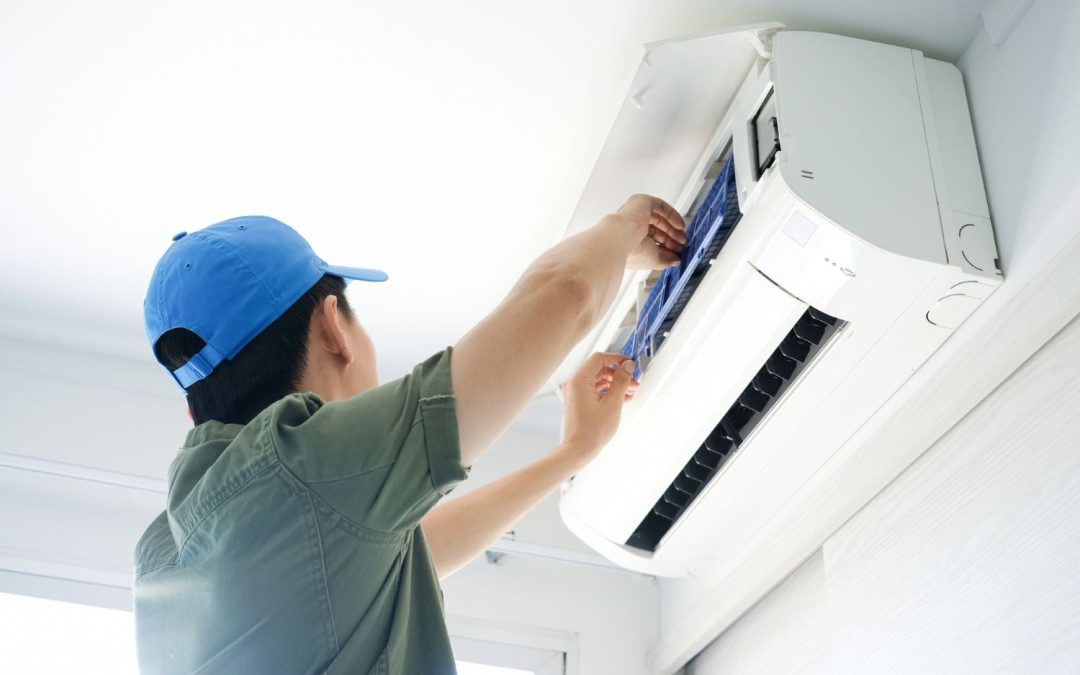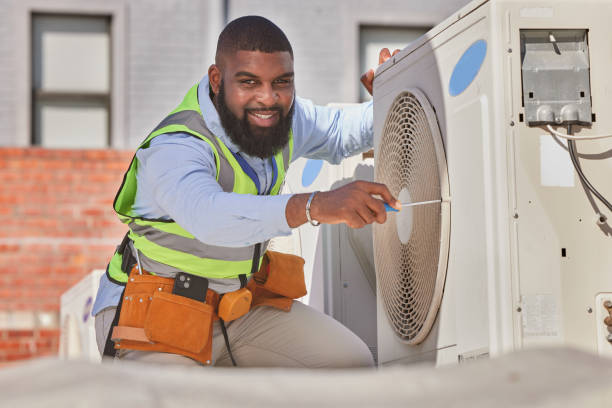If you’re considering a career in HVAC (Heating, Ventilation, and Air Conditioning), one of the first questions you may have is how much HVAC technicians earn. The good news is that HVAC is known for competitive pay, strong demand, hands-on work, and a clear path for career advancement. This guide breaks down annual salary expectations, career potential, job descriptions, training costs, entry-level wages, and what to know about HVAC contracts and service agreements.
How Much Do HVAC Technicians Make a Year?

In the United States, HVAC technicians typically earn between $55,000 and $62,000 per year on average, according to salary.com. Pay varies based on experience, location, certifications, and the type of work performed.
Here’s a general breakdown:
- Entry-Level HVAC Technician: Approximately $39,000–$54,000 per year
- Mid-Level Technician: Around $55,000–$65,000 per year
- Experienced Technician: Often $66,000–$90,000 or more annually
Technicians who work in commercial HVAC, specialize in refrigeration, obtain advanced certifications, or take on supervisory roles can earn well above the national average.
Is HVAC a Good Career?
HVAC is widely considered a strong career choice for individuals who enjoy hands-on, technical work and want a profession with long-term stability.
Reasons HVAC is a solid career path:
- High demand: Every home and commercial building relies on heating and cooling, ensuring consistent job availability.
- Strong earning potential: Pay grows quickly with experience and certifications.
- No four-year degree required: Most technicians enter the field through trade school or apprenticeships.
- Job security: Maintenance, repair, and installation work cannot be outsourced or automated easily.
- Career advancement paths: Opportunities include installer, service technician, lead technician, estimator, project manager, or business owner.
HVAC does require physical labor and sometimes challenging working environments, but many find the work rewarding and stable.
How to Get Into HVAC

Most technicians follow a straightforward path into the field:
- Earn a high school diploma or equivalent
- Attend a trade school or technical program (typically 6–24 months)
- Obtain required certifications, especially EPA Section 608 for handling refrigerants
- Gain hands-on experience through an apprenticeship or entry-level job
- Pursue state licensing if required in your area
Trade schools provide foundational knowledge, while apprenticeships allow you to earn while you learn. Many technicians continue building their skills through certifications such as NATE or HVAC Excellence.
HVAC Training Cost
The cost of HVAC training varies depending on the type of program:
- Certificate programs: $1,200–$15,000
- Associate degree programs: $15,000–$35,000
- Apprenticeships: Typically low-cost with minimal fees; many apprentices earn wages during training
- Online HVAC programs: Approximately $2,000–$3,000
Costs depend on program length, location, and whether tools, textbooks, and testing fees are included.
HVAC Entry-Level Salary
Entry-level HVAC technicians generally earn between $39,000 and $54,000 per year, depending on the employer and region. Some entry positions pay hourly wages starting around $18–$22 per hour.
Pay increases quickly with:
- Field experience
- Specialized skills
- Refrigeration knowledge
- Additional certifications
Entry-level installers may start at similar or slightly lower wages, with growth potential as they take on more complex work.
HVAC Service Technician Job Description
A service technician focuses specifically on repair and maintenance tasks rather than installation.
Common duties include:
- Troubleshooting malfunctioning systems
- Restoring heating and cooling performance
- Conducting seasonal tune-ups
- Handling emergency calls
- Keeping accurate records of work performed
This role requires strong diagnostic skills and customer communication.
HVAC Installer Salary and Job Description
HVAC installers specialize in setting up new systems in homes or commercial buildings.
Installer responsibilities include:
- Assembling HVAC units
- Connecting refrigerant lines and electrical components
- Installing ductwork
- Ensuring systems meet local codes and manufacturer specifications
Installers typically earn about $60,000 per year on average, though pay varies by region and experience. Some installers transition into service work after gaining field experience.
HVAC Contracts and Service Agreements

HVAC contracts, often called service agreements or maintenance agreements, are formal documents outlining scheduled maintenance and service terms between customers and HVAC companies.
A typical HVAC service agreement includes:
- A list of maintenance tasks
- How often the technician will visit (usually once or twice a year)
- Pricing and payment terms
- Customer responsibilities
- Discounts or priority service benefits
For homeowners, these agreements help maintain system performance, reduce repair costs, and extend equipment life. For HVAC companies, they provide recurring revenue and long-term customer relationships.
Where can I find a skilled HVAC technician?
TealPot offers a wide array of skilled, verified service providers near you. With transparent pricing and reliable customer support, the platform makes it easy to book trusted professionals for everything from routine maintenance to urgent repairs.








